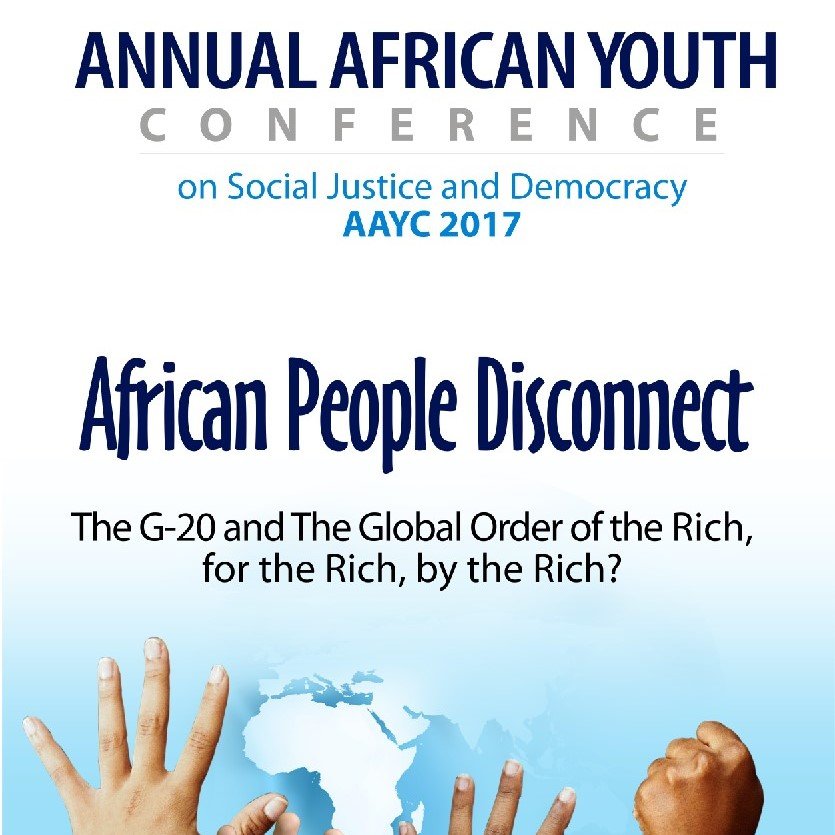African People Disconnect – AAYC 2017
[nectar_dropcap color=”#27ccc0″]T[/nectar_dropcap]he AAYC was a 3-day conference from 28 June to 1 July, featuring senior PARI researcher Alice Soares Guimarães as a facilitator. Organised by the Friederich Ebert Institute, this year’s conference held the title: The G-20 and the Global Order of the rich, by the rich, for the rich?
The AAYC is a product of national and sub-regional youth leadership programmes in 15 countries and three regional economic communities in sub-Saharan Africa. More than 2000 young people from social movements, civil society, social democratic political parties and trade unions, have participated over the past ten years.
The conference provides a platform for participants and alumni to interrogate social justice and democracy issues in Africa. They develop advocacy strategies to advance social and economic rights, and open institutions for active citizen engagement against injustice and discrimination. Participants also debate policy formulation and implementation on the continent.
This year’s conference considered the African perspective with respect to the G-20 Hamburg Summit in July and was poised to focus on the questions around how globalization should be governed in the future and how a globalized world should be coordinated for the benefit of all people. This was against the backdrop of economic uncertainty, increased inequality, climate change, refugees and migration the globe over.
While focused on multilateral cooperation, the G-20 is dominated by rich western states (see video of anti-capitalist protest), and the AAYC particularly questioned how Southern states, especially in Africa, participate in the G-20 and represent African interests and priorities.
It is important for citizens to be involved in the globalization process and for their interests to be taken into account, in order to prevent democracy being eroded. This conference discussed a new multilateralism with coherent policies that place “people at the centre”, towards fair ecological and social policy solutions and upholding human rights.
In this context, Alice Soares Guimarães facilitated a session on economic development and finance. Her session had the following preface:
We need a radical departure from the increasingly uncontrollable imbalances created by the growth policies in recent decades. Driven by finance capitalism, these have resulted in sovereign debt crises and austerity measures which erode the fabric of societies and jeopardize democratic cohesion. Indeed, the financial or speculative economy has become the “tail” that wags the “dog” of the real economy. In addition, outflows of illicit capital in Africa continue to result in a net loss of resources that overwhelms any salutary economic effects of recorded capital inflows. What impact do illicit financial flows have on African states? How can Africa deal with a weak tax administration coupled with multinational tax-avoidance schemes and why is international cooperation necessary?


